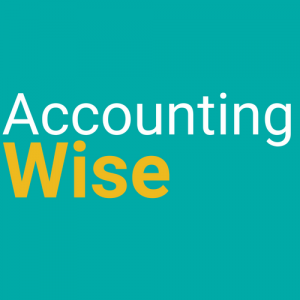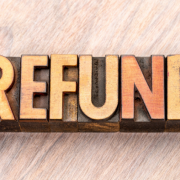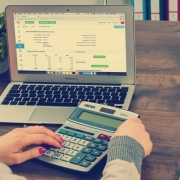What business expenses can I claim as a Limited Company?
Are you a seasoned veteran of running a limited company or just starting out for the first time? Whatever the case, there are often limited company expenses that go unclaimed, which means you could end up paying more tax than you need to. We’ve put together this article to help you make the most of the tax relief available to you.
Being savvy with your expenses is a large part of running a successful business, regardless of its size. Claiming business expenses is a simple way to keep your business tax efficient – it reduces your profit, which in turn reduces your Corporation Tax payments. By claiming every allowable expense, you’re making sure you don’t pay a penny more in tax than you have to.
Remember: the general rule is that expenses must be “wholly, exclusively and necessary” for the business. However, HMRC rules can be complex and are often based on concepts such as the ‘fairness’ and ‘reasonableness’ of expenses claimed. There may also be an impact on the amount of personal tax you pay.
In this article, we’ll be running down all the expenses you can claim as a limited company. But it’s not just about knowing what to claim, how do you actually go about claiming it? Do you just keep a list, or throw all the receipts in a shoebox? There are a variety of methods you could use, depending on the type of expense. Read on to find out how.
If you need help with your limited company accounts or in claiming your expenses, you can give our expert advisors a call and discover how Accounting Wise can help your business.
What is tax relief?
Allowable business expenses reduce the amount of profit on which limited companies pay Corporation Tax. So, more allowable expenses means less taxable profit and less tax to pay.
To account for your expenses properly, you need to keep accurate records of everything. Bear in mind that you’re legally bound to keep these records for at least six years.
As ever, HMRC rules can be complex and are often based on concepts such as the ‘fairness’ and ‘reasonableness’ of expenses claimed. When in doubt, always contact an accountant such as Accounting Wise for advice.
Claiming expenses as a limited company
You can either pay your company’s expenses directly from the company account or as a ‘reimbursed expense’ when paid by you personally. It’s important to remember to keep an accurate record any time you reimburse yourself from the company funds.
Your employees can also claim expenses, so it’s good practice to have a company expense form and policies – i.e. how much employees are allowed to spend and in what situations – and collect and file it at the end of each month. Here, it’s also important to stress that your employees must keep all receipts to be able to reclaim any expenditures.
How to keep a record of my limited company business expenses
Keeping track of your limited company business expenses such as business mileage is essential, as without the breakdown of journeys and mileage covered, HMRC could refuse to validate your claim.
We suggest detailing all business mileage on a spreadsheet and keeping it up-to-date throughout the year. If you’re claiming tax relief for fuel when using a company owned car, you must keep hold of all of your receipts.
What to claim
For other business expenses then the cost of anything that’s necessary for the running your limited company will receive tax relief – the trick is to make sure you meticulously record everything so you don’t lose out. Unlike mileage, you’re not limited to a certain amount of supplies, within reason.
If you’re not using online accounting software the best way to keep track of what you’ve spent on supplies and other expenses such as travel and subsistence is, again, in a spreadsheet. The main difference is you don’t have to record each item separately – for example, if you have bought 10 packs of 100 pens at £3 each, you can record it as 1000 pens – £30. It is, however, important to keep the receipts for every separate purchase. Receipts must be kept for six years after you have filed your returns, as HMRC could decide to investigate at any point within this time.
Travel for the day
If you’re just away for the day, you can claim lunch costs if you exceed five working hours, this extends to dinner if you’re working up to ten hours. As always, ensure that you keep receipts for everything. It’s also advisable to log all expenses in your accounting software, or on a spreadsheet so that you always have the date and exact costs at hand in case HMRC decide to take a closer look. Also be aware that HMRC take a dim view of excessive use of taxis, particularly if they appear unnecessary – i.e. it was a very short journey.
How best to log
Storing receipts can be done in a variety of ways and it’s always best practice to keep the paper copies somewhere safe, as well as backing them up digitally – with a picture on your phone for example (receipts tend to fade, but digital backups will remain pristine forever). You can manually scan them or use a mobile app like Receipt Bank to record the details.
Accountancy fee expenses for limited companies
You can claim tax relief for the full cost of your limited company’s accountancy fees, providing the accountants’ time is being spent working wholly on your company’s affairs. If the accountants provide advice or spend time working on your personal affairs (such as preparing your personal tax return) this can be included in your limited company accounts but will be taxable to you personally and needs to be recorded as a ‘benefit in kind’ (BIK).
In addition, your company will pay National Insurance Contributions at 13.8% on the BIK (figures correct for the 2018/19 and 2019/20 tax years) .
Accommodation expenses whilst on business travel
You can claim expenses for accommodation when you travel to a temporary location for business-related purposes, providing the expense is reasonable and not excessive. HMRC will likely question any excessive claims for expensive hotels or apartments with more than one bedroom. So, sorry, but the Ritz is probably not going to be acceptable!
At Accounting Wise, we use a mobile app to simplify recording expenses. Through the ‘Reciept Bank’ app, you can take a photo and have the details automatically uploaded to your accounting software.
Business mileage expenses
If you’ve used your personal car or van to get to a temporary place of work and paid out for the petrol personally, you’re entitled to get this back from your company.
If you use your personal vehicle for business travel to a temporary work location you can claim the following rates:
| Vehicle | Rate Per Mile (On first 10,000 miles in tax year) | Rate Per Mile (On each mile over 10,000 miles) |
|---|---|---|
| Cars and vans | 45p | 25p |
| Motorbikes | 24p | 24p |
| Bicycle | 20p | 20p |
The great thing about this is that not only does the business expense reduce your overall Corporation Tax bill, it also means you can reimburse yourself the amount claimed.
If your company owns the car, however, you can only claim the cost of fuel.
For more information on company cars check out the Taxation of Company Cars on the HMRC’s website.
We also provide a mobile app for Accounting Wise clients to simplify recording your mileage. The ‘Tripcatcher’ app streamlines the process of claiming by recording mileage, setting recurring mileage and integrating with your accounting software.
You can use mobile apps that can automate the process for you as well.
Car, van and travel expenses as a limited company
Your travel expenses are generally deductible where all the following conditions apply:
- You are responsible for paying the travel costs
- The travel you are undertaking is necessary for your work, i.e. your attendance at the place you are travelling to is mandatory
- The travel should not be ‘ordinary commuting’. HMRC defines a commute as the journey you make between your home and permanent workplace.
You can claim allowable business expenses for:
- vehicle insurance
- repairs and servicing
- fuel
- parking
- hire charges
- vehicle licence fees
- breakdown cover
- train, bus, air and taxi fares
- hotel rooms
- meals on overnight business trips
You can’t claim for:
- non-business driving or travel costs
- fines
- travel between home and work
Charitable donations as a limited company
Your limited company pays less Corporation Tax when it gives the following to charity:
- money
- equipment or trading stock (items your company makes or sells)
- land, property or shares in another company (shares in your own company don’t qualify)
- employees (on secondment)
- sponsorship payments.
You can claim tax relief by deducting the value of your donations from your total business profits before you pay tax.
Childcare costs expenses
Voucher Scheme
The Childcare Voucher scheme was withdrawn by the government on 4th October 2018 and is closed to new entrants. If you were set up on the Childcare Voucher Scheme before this date you may continue to use the scheme.
Tax-Free Childcare scheme
In 2017, the government started to roll out a new Tax-Free Childcare scheme for parents and carers. Read the HMRC’s Tax-Free Childcare article for the full details.
Please note that your limited company cannot provide an employee with childcare using both schemes at the same time, it’s one or the other.
Christmas party and staff event expenses through your limited company
Your company can host an annual event – most commonly a Christmas party – as a tax-free benefit, providing you meet certain conditions.
Your employees may invite a partner but you must not exceed an expenditure of £150 per head (including VAT). The event must cater mostly for staff. For example, expenses for one director and a plus one would be acceptable and would give you a budget of £300.
However, if those attending are not mostly employees then it would be difficult to argue the event’s main purpose is to entertain staff. Note that the £150 amount is an annual limit and can cover multiple events for staff.
Entertainment expenses
With certain, limited exceptions, expenditure on business entertainment or gifts is not allowable as a deduction against profits, even if it is a genuine expense of your trade or business. Tax relief is therefore not available.
If you’ve incurred the cost of business entertaining personally you may be able to claim the expense as being incurred in the performance of your duties as a director. These costs would be disallowed in the company profits, so the net effect would be the same as not claiming the expenses in the first place.
Equipment expenses for your limited company
The cost of anything that’s necessary and essential for your duties as a director will receive tax relief. This covers computers, printers, and software. You may also claim reasonable relief towards the cost of equipping/furnishing an office, e.g. chairs, bookcases and so on. This may appear to hold a dual purpose, but it’s allowed because it is a consequence of a business need. As long as the personal use is insignificant it will not be treated as a ‘benefit in kind’ and you won’t have to pay personal tax on it.
Eyesight tests and glasses or spectacles
You can claim for vision tests providing it’s necessary for the initial or continued use of visual display equipment in your duties. However, you aren’t able to claim for glasses or contact lenses unless they’re prescribed during your time at work, specifically for ‘monitor or screen work’.
Fees and expenses for forming your limited company
The costs associated with setting up your limited company are business expenses and attract tax relief. This covers all the relevant expenses, anything from printing to supplying the necessary equipment for your company. Any accountancy fees or mandatory formation costs you pay can also be claimed.
Accounting Wise can take care of your company formation for you – it’s free if you take an accountancy package from us.
Fixed assets and disposals of fixed assets
As long as they’re entirely purchased for business use, items such as laptops, PCs, business phones and furniture can be recorded as a business fixed asset. If the asset is obsolete or no longer used by your business, you may decide to dispose of it.
Whether you continue to use a fixed asset, sell old models or scrap them, HMRC will need to know in order to ensure it’s correctly accounted for each year.
General office purchases for your limited company
Minor purchases with receipts that are used wholly, exclusively and necessarily in the performance of your duties are claimable. This includes postage, computer consumables, and office stationery.
Gifts and trivial benefits from your limited company
You don’t have to pay tax on a gift or benefit for your employee if all of the following apply:
- cost is less than £50 to provide
- form is not cash or a cash voucher
- substance is not a reward for their work or performance
- it is not stated in the terms of their contract
This is known as a ‘trivial benefit’. You don’t need to pay tax or National Insurance or let HMRC know.
You have to pay tax on any gifts or benefits that don’t meet all these criteria.
Medical insurance (Healthcare) expenses through your limited company
Your company may provide financial support towards medical insurance for employees. This is regarded as a ‘benefit in kind’ and the employee must pay personal tax on it. Your company will be liable to National Insurance Contributions at 13.8% (figures correct for the 2018/19 and 2019/20 tax years).
Your company can provide the following and claim tax relief:
- medical insurance for an employee working abroad
- an annual check-up.
Pension payments through your limited company
Once your company has set up a contract with a pension provider it can make payments into your pension and receive 100% tax relief as an allowable business expense. There’s a limit of £40,000 on how much you can contribute free of tax to a pension scheme either through your company or personally.
Please speak to your financial advisor for more information as they can advise in more detail on this matter.
Professional subscriptions
Professional subscriptions such as membership of a trade body, or registrations needed in order to enable you to trade are allowable, provided they are HMRC approved professional bodies which are relevant to your employment. If it is not directly relevant, then it’s not allowed. Membership of your local golf club if you’re a plumber is not going to be allowed no matter how much you think it may help your business!
Salaries
A salary paid to you as an employee or as the director of your company is regarded as an allowable expense, as are any National Insurance Contributions (NICs).
You may pay a tax-efficient salary up to the National Insurance threshold, i.e. before you become liable to start paying NICs. You’ll save money by paying a lower monthly salary, because after you cross the NI threshold you’ll have to begin paying NICs.
Mobile telephone, landline and broadband expenses as a limited company
If your landline phone contract is only for business use, this is an allowable company expense and you won’t be taxed personally. By having a separate phone line for ‘only business’, it shows this is 100% for business.
For mobile phones, provided the contract is between the company and the mobile phone provider, the company can claim all costs as an allowable expense.
If your company pays your entire personal phone bill, you’ll have to pay a ‘benefit in kind’ (BIK) charge on the total amount of the bill, and your company will pay National Insurance Contributions at 13.8% (figures correct for the 2018/19 and 2019/20 tax years) on the same amount (minus the cost of any business calls you can identify).
If you make a claim for business only calls made on your personal mobile or landline phone bill, this is an allowable expense provided you can prove it was a business call. You can also reclaim the VAT element of the business calls (if you‘re VAT registered), but you won’t be able to reclaim any part of the line rental, as you would incur this cost anyway.
It’s increasingly difficult to separate the cost of business calls, given the way mobile (and many landline) phone operators package call costs (e.g. ‘up to 2,000 free monthly minutes’). If you can’t separate the business element of your personal mobile phone usage, you cannot make a claim, due to the duality of purpose rules, as any business calls you make incur no extra cost on top of the tariff you already pay for personal calls.
Broadband
If you start to carry out some of your work from home, using your residential broadband, you cannot make a claim if the broadband was already in place, unless you can clearly split the business from the personal element. Having two broadband lines could show one line is 100% for business.
However, you can reclaim the costs from your company, and no ‘benefit in kind’ charge arises, if you have no broadband contract at home and need internet access to carry out your business.
Travel and subsistence expenses as a limited company
If you have to travel for your work you may be able to claim tax relief on the cost or money you’ve spent on food or overnight expenses. You can claim tax relief for money you’ve spent on things like:
- public transport costs
- hotel accommodation if you have to stay overnight
- food and drink
- congestion charges and tolls
- parking fees
- business phone calls and printing costs.
You can’t claim for travelling to and from work, unless you’re travelling to a temporary place of work.
Training expenses through your limited company
You can claim for training that’s aimed at improving the skills you apply in your work. Additionally, you can claim travel and accommodation while attending a training course.
HMRC often disallow expenses for courses such as MBAs, as they offer new skills and knowledge rather than building on existing skills. In certain situations, they are allowed, but only if you demonstrate that they are reinforcing/improving your existing knowledge/skills.
Use of your home as an office when you’re a limited company
Working through a limited company means if you work from home, HMRC allows you to claim £4 each week without keeping any detailed records – this equates to £208 per year. The other good news is that HMRC doesn’t believe this to be a benefit in kind, which means you won’t have any tax to pay on this through your Self Assessment.
As always, there are rules: you must be able to prove that you regularly spend time doing your job in this office space, so you can’t just use your home office for a small bit of administration while the majority of your work is done on-site or at client offices.
Equipment that is necessary and essential for your professional duties will receive tax relief. You may also claim reasonable relief towards the cost of equipping/furnishing an office, (for example chairs or bookcases).
Renting your office to your business
You might be able to rent your personal workspace in your home to your limited company and claim that as an expense. You’ll need to declare these earnings on your Self Assessment, so they’ll be subject to further taxes after you’ve deducted your expenses. HMRC requires you to:
- own the property
- make sure any amount over £208 per annum is classified as rental expenses
- create a rental agreement between yourself and your limited company
- make sure that the rental agreement states that the rent is specifically for use of the office at certain times of the day, and nowhere else within your house is used
- make sure the rent you set is reasonable.
HMRC rules are complex in this area and they expect any calculation to be ‘fair and reasonable’. You should speak to a Accounting Wise accountant before preparing a rental agreement between you and your company.









